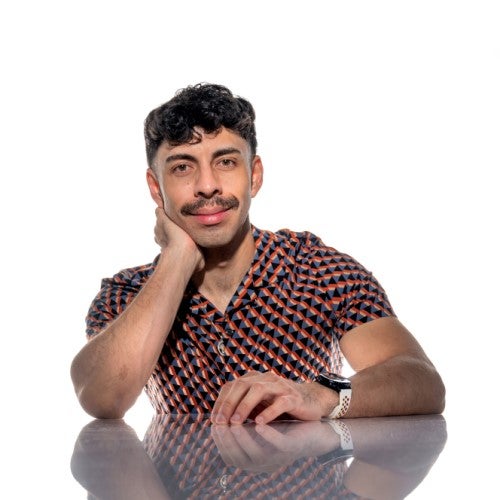
Adrian Rodriguez grew up in Blackfoot, Idaho, and came to Boise State after high school. After numerous starts, stops, restarts, changes of direction and adjustments, a presentation from a health educator helped him find his path.
“I was pursuing kinesiology and we had a health education specialist come talk to our class. To hear about her work in primary prevention was my shifting point into public health,” he said.
Rodriguez received a bachelor’s degree in public health in 2020. He is now pursuing a master’s and working with the Family Caregiver Navigator program housed in the College of Health Sciences’ Center for the Study of Aging. This is a free service focused on the overall mental health and well-being of caregivers looking after ill or aging family members. The program helps clients develop a care plan and connect to resources.
As a graduate researcher and bilingual navigator in the program, Rodriguez focuses on extending these resources to the Hispanic community, the largest growing demographic in the U.S. and one disproportionately affected by adverse health outcomes. He identifies how unique barriers and cultural values – language, socioeconomics, immigration status and more – influence service utilization and caregiver roles.
Some barriers based on cultural beliefs may actually be useful in unlocking messaging that will resonate with the community.
“We can use these values – strong connection to family, for example – to identify solutions and ways to interact with Hispanic populations,” he said.
His work is already paying off. The Center for the Study of Aging hosted the first Hispanic section of the Idaho Caregiver Conference in 2023. The event at the Hispanic Cultural Center in Nampa, Idaho, engaged Spanish-speaking caregivers and connected them with fellow caregivers across the state.
“The efforts of Adrian Rodriguez and Dr. Taylor Neher from the School of Public and Population Health are dismantling the often invisible barrier of ‘cultural fit’ of the services and support available to members of the Spanish-speaking community,” said Sarah Toevs, professor in the School of Public and Population Health and center director.